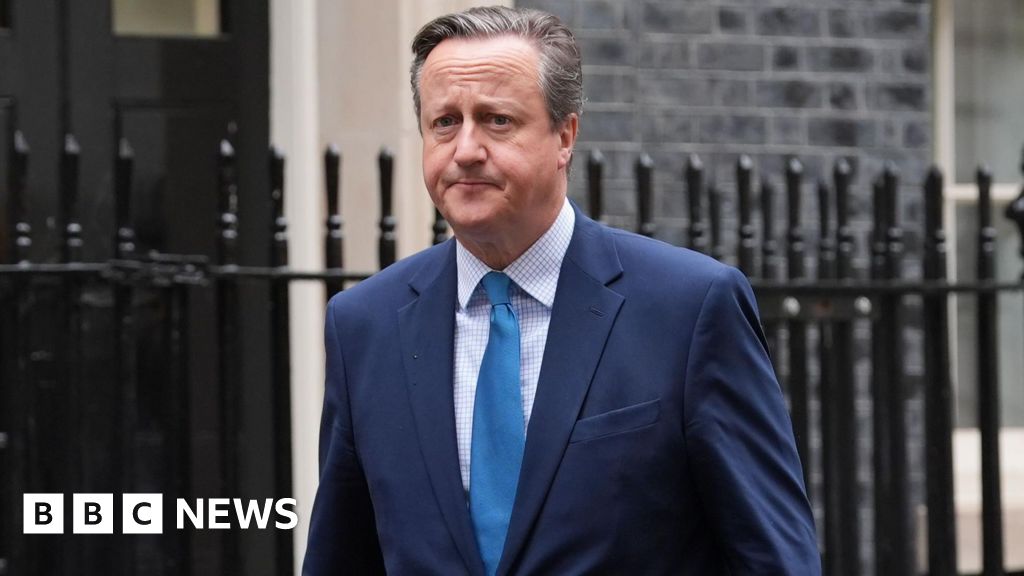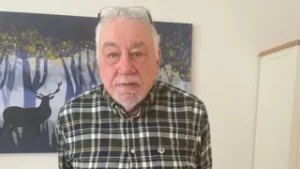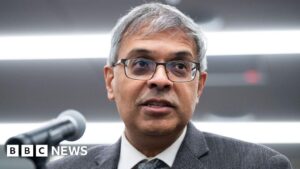Cameron changes mind to back assisted dying bill
Lord Cameron previously opposed assisted dying but says the current bill “is about shortening death”.


Former Prime Minister Lord David Cameron has backed moves to legalise assisted dying for terminally ill adults.
In an article in The Times, Lord Cameron said that while he had opposed moves to legalise assisted dying in the past, he believed the current proposal was “not about ending life, it is about shortening death“.
Previously his main concern had been that “vulnerable people could be pressured into hastening their own deaths”, but he said he believed the current proposal contained “sufficient safeguards” to prevent this.
Lord Cameron becomes the first former PM to support the bill after Gordon Brown, Baroness Theresa May, Boris Johnson and Liz Truss all said they were against it.
Brown, a longstanding critic of assisted dying, told BBC Radio 4’s Sunday programme: “An assisted dying law, however well intended, would alter society’s attitude towards elderly, seriously ill and disabled people, even if only subliminally, and I also fear the caring professions would lose something irreplaceable – their position as exclusively caregivers.”
Brown, Johnson and Truss will not get a vote on the issue as they are no longer MPs.
However Lord Cameron, appointed a peer by Rishi Sunak to serve as foreign secretary, pledged to vote for the bill if it reached the House of Lords.
The last time there was a vote on legalising assisted dying in the House of Commons in 2015, he did not record a vote.
Sources close to Baroness May, who also sits in the Lords, said her views had not changed since she voted against legalising assisted dying in 2015.
MPs will get their first opportunity to vote on the bill proposed by Labour MP Kim Leadbeater on Friday.
Currently slightly more MPs have publicly said they will support it but more than half have not revealed which way they plan to vote, making the result hard to predict.
The Terminally Ill Adults (End of Life) Bill would allow terminally ill people expected to die within six months to seek help to end their life if two doctors and a High Court judge verified they were eligible and had made their decision voluntarily.
Leadbeater said the “status quo is not fit for purpose” and her proposals could prevent “very harrowing, very distressing deaths”.
Current laws in the UK prevent people from asking for medical help to die.
The bill would require those who apply for assisted dying to:
- Be over the age of 18, a resident in England and Wales and registered with a GP for at least 12 months
- Have the mental capacity to make a choice about ending their life
- Express a “clear, settled and informed” wish, free from coercion or pressure, at every stage of the process.
Writing in The Times, Lord Cameron said: “Many of these safeguards will be familiar from previous proposals.
“But this new Bill protects the vulnerable still further, including by making coercion a criminal offence.”
He added: “Will this law lead to a meaningful reduction in human suffering? I find it very hard to argue that the answer to this question is anything other than ‘yes’.”
However, some have raised concerns terminally ill people could still feel under pressure to end their own lives.
Dr Rachel Clarke, a palliative care specialist working in the NHS, told BBC Radio 4’s Today programme the “patchy” nature of end-of-life care meant some people could be “made to feel a burden” or suffer pain that could be avoided with better treatment.
GP Dr Jess Harvey said there would also be practical issues with introducing assisted dying in “an already overloaded and overwhelmed NHS system”.
She told the programme there would be costs of setting up what would be “almost a new specialist area” and questioned whether the money would be better invested in improving palliative care.






